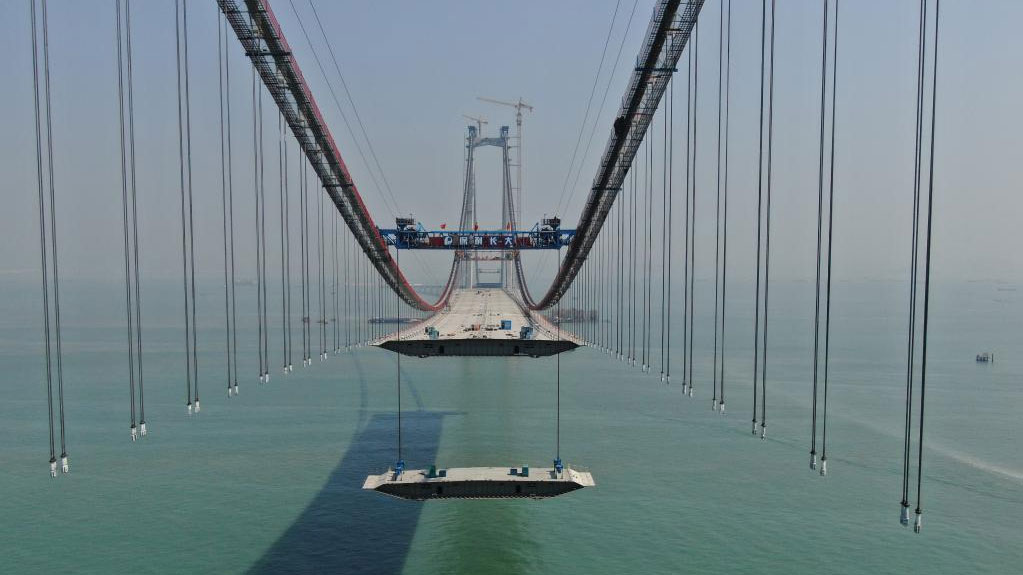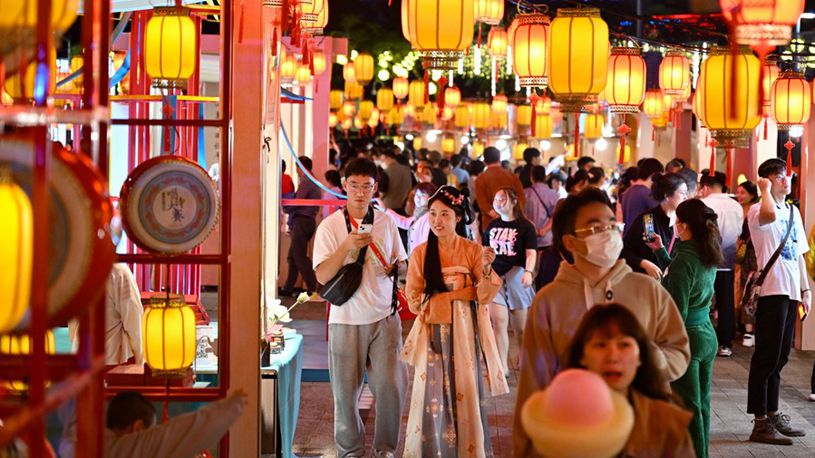U.S. economic polarization crying out for attention
The United States is the most economically polarized among Western countries. It has long been stuck in the conundrum where the rich get richer and the poor become poorer.
According to the latest data from its Census Bureau, the U.S. Gini coefficient hit 0.494 in 2021, setting a new record. The yawning wealth gap has become a chronic malaise of American society, leaving an indelible stain on the country's democracy and human rights record.
Since the 1970s, income inequality and wealth disparity in the U.S. have continually deepened. According to a Federal Reserve's latest report, the total wealth of the richest 1 percent reached a record $45.9 trillion at the end of the fourth quarter of 2021, more than that of the bottom 90 percent combined.
A Bloomberg report said that more and more wealth is getting to the top of the "pyramid," which is the latest signal of the widening wealth gap in American society.
Currently, 37 million American people are still living below the poverty line. A survey by Pew Research Center suggested that one-in-four U.S. parents say there have been times in the past year when they could not afford food their family needed or to pay their rent or mortgage.
Nobel Prize-winning economist Joseph Stiglitz commented that the U.S. has become a wealthy country full of poor people and a huge gap is dividing its upper class and other classes.
The COVID-19 pandemic has intensified economic inequality in the U.S. Excessive money supply and large-scale fiscal spending drove up stock and housing prices, bringing enormous benefits to wealthier asset owners. According to a Fed report on household wealth, the total wealth of the richest 1 percent increased by more than $12 trillion, or more than a third, during the course of the pandemic.
Besides, the economic recession triggered by the pandemic has led to massive job losses and further deterioration in the economic situation of low-income earners. The website of The Atlantic said that low-income people in the U.S. would usually delay seeing a doctor when they became ill, not because they did not want to recover, but because they had no money at all.
What's more ironic is that during the pandemic, it was difficult for those in need to reach the relief measures of the U.S. A UN human rights expert said that U.S. responses to COVID-19 have fallen people in poverty.
The economic polarization has exacerbated social injustice in the U.S.
In the country, access to higher education is disproportionately skewed toward the rich, while the low-income group has no equal access to education. A study found that at 38 elite colleges in the country, more students came from the top 1 percent of the income scale than from the entire bottom 60 percent.
A report by the U.S. Department of Housing and Urban Development showed that more than 580,000 people were homeless in 2020, with 226,000 sleeping outside, in cars or in abandoned buildings.
A study in the Journal of the American Medical Association said the gap in life expectancy between the richest and poorest percentiles increased to 15.51 years in 2021.
Problems including growing ethnic conflicts, frequent urban riots and serious violent crimes in the country are all closely related to the widening wealth gap.
The wealth polarization in the U.S is inherent to its own political system and the interests of the capital that its government represents.
Over a hundred years ago, Republican Senator Mark Hanna said of American politics: "There are two things that are important in politics. The first is money, and I can't remember what the second one is."
Under the influence of money politics, the American government is more willing to serve a small group of rich people, rather than the interests of the majority of voters.
A study by the American think tank Niskanen Center showed that Members of Congress are usually more responsive to the opinions of the rich than the poor in their districts. Low-income constituents have a hard time holding their representatives accountable.
Singaporean scholar Kishore Mahbubani pointed out that the U.S. is functioning as a plutocracy instead of a democracy. A democracy is a government of the people, by the people, for the people, while a plutocracy is a government of the one percent, by the one percent, for the one percent, he added.
In the U.S., the world's number one capitalist country, polarization between the rich and the poor is crying out for attention. U.S. democracy, which cannot find a solution to the wealth gap, is unquestionably hypocritic. The country should reach out to the people at the bottom, face up to the grim reality of the ever-widening wealth gap at home and take earnest measures to solve the problem.
(Zhong Sheng is a pen name often used by People's Daily to express its views on foreign policy and international affairs.)
Photos
Related Stories
- Why U.S. overreaction to Chinese airship is ludicrous, dangerous?
- Washington has money for wars overseas, not for railways at home -- critics
- Interview: It's illogical U.S. spends much on wars, very little on infrastructure, says renowned anti-war activist
- Union officials say cost cutting led to significant derailments in U.S.: ABC News
- Omicron subvariant XBB.1.5 accounts for 85 pct new COVID-19 cases in U.S.
Copyright © 2023 People's Daily Online. All Rights Reserved.









